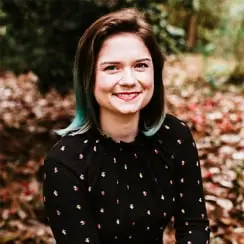 | 1 LU / HSW |
 | 1 LU / HSW |
Call to Action: Participants can choose to get directly involved with CAUSE, including:
Abstract: We need standardized, open source post-occupancy evaluation (POE) tools tailored to K-12 facilities that capture both educational outcomes and environmental exposures. Despite POEs gaining attention in architecture and design fields, no shared framework has successfully united industry-based researchers in our shared goal to understand the impact of design. Our session will share how our coalition based within architecture firms themselves seeks to provide a standardized method by emphasizing advances in open science and communal benefit. Participants will learn what barriers have hampered past efforts to standardize POEs, and what opportunities exist in the field if we successfully adopt a common standard for this increasingly common research. See some examples of how founding firms in the Coalition for the Advanced Understanding of School Environments have approached POEs that will seed our templates for shared measures. Participants will also have an opportunity to ask questions and give input on the development of the CAUSE framework, including learning about opportunities to get their people and projects involved.
Learning Objectives:

Dr. Ralph is the Director of Research with Multistudio. He earned a PhD in the Department of Educational Psychology at the University of Kansas, and he uses his background as both a K-12 and higher education instructor to connect research to issues of practice and experience in classrooms, with a focus on equitable application of quantitative methods as a tool for improved teaching and dismantling barriers to success for historically marginalized groups.

Dr. Mantooth leads research efforts for the Education practice at HKS. Her passion for design research and scholarship is centered around people through inclusive practices. She works to expand the breadth of knowledge that explores human behavior, motivation, and well-being in educational settings towards a more evidence-based and equity-centered future. Outside of HKS, Renae is an Assistant Professor of the Practice in the College of Design at North Carolina State University.

Dr. French is the Director of Planning for Austin ISD with nearly a decade of experience in the AEC industry. She holds dual Bachelors in Environmental Design and Psychology and a Masters in Facility Planning & Management and Organizational Behavior. Following a Fulbright Postgraduate Scholarship, she completed her PhD through the University of Melbourne's Graduate School of Education, focusing on how to better support leaders and teachers in transitioning to more innovative learning spaces.

Dr. Eitland is the Director of the Human Experience Lab at Perkins&Will where she is focused on the impact of the built environment on public health. Erika received her doctorate from the Harvard Chan School of Public Health in Environmental Health where she authored ‘Schools for Health: Foundations for Student Success’ report that examined the association between building quality and student health and performance. Erika advises on national policy for the U.S. Environmental Protection Agency, as a member of Children’s Health Protection Advisory Committee. She also holds a Master of Public Health in Climate and Health from Columbia University.
Assessment of the School Facility
The ability to objectively evaluate a learning environment post-occupancy and utilize that data to improve future projects. Implements a plan for educational commissioning that provides guidance on how to use and maximize the learning environment to meet the foundational vision established in the planning phase.